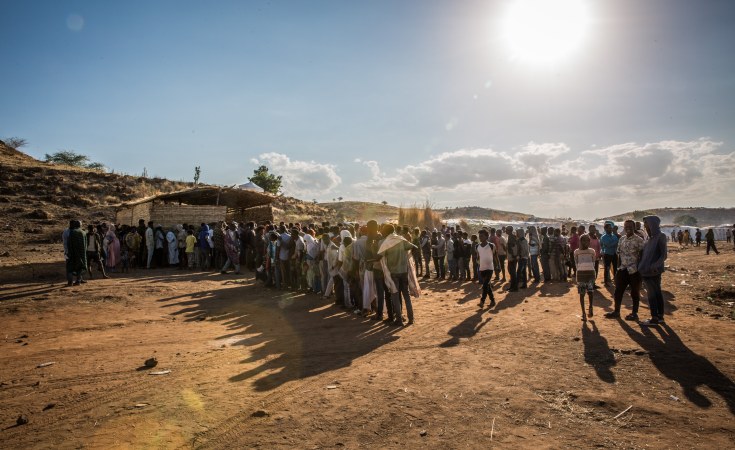Rwanda has set up an emergency refugee camp in Rubavu District amid rising numbers of arriving refugees from eastern DR Congo.
Nkamira Transit Centre located in Kanzenze Sector was opened on Monday, January 16 and there were 670 Congolese refugees as of Tuesday afternoon, according to the Ministry of Emergency Management.
ALSO READ: Rwanda says has no intention of expelling Congolese refugees
The centre was set up in anticipation of a possible influx of refugees in the coming weeks amid fears of renewed fighting in eastern DR Congo between government forces and the M23 rebels.
Some of the arriving refugees are hosted at Kijote Transit Centre in Nyabihu.
So far, of the nearly 3,000 Congolese refugees that have arrived in Rwanda since November 2022, 1,760 have been taken to Mahama refugee camp in Kirehe District in Eastern Province.
Inside Nkamira Transit Centre, government and aid agencies have already connected water supply channels and electricity. A health facility is ready to offer medical services while several site operators and staff from the United Nations High Commissioner for Refugee (UNHCR) and other humanitarian organisations are on the site.
As of Monday, nearly 3,000 Congolese had crossed into Rwanda since November 2022.
The ministry said they are ready to host all arriving refugees.
ALSO READ: 'We want justice': Stories of DR Congo's 'tired' refugees
Rwanda is already home to more than 72,000 Congolese refugees, who fled ethnic violence and persecution targeted at Kinyarwanda speaking Congolese communities.
Some of them have lived in refugee camps since 1996.
Eastern DR Congo is home to more than 120 armed groups, who are accused of various abuses.
Analysts say that the arrival of refugees and setting up of new camps is proof that Rwanda has no intention of expelling Congolese refugees as some international actors and DR Congo officials had previously implied.
In fact, Government spokesperson, Yolande Makolo recently issued a statement stating the record straight.
"We always welcome people fleeing insecurity, persecution, and violence. We are asking for the international community to take responsibility for finding a durable solution for this forgotten group of refugees from the DRC," she tweeted.
She emphasized that nothing will change until the international community and the Congolese government stop evading responsibility and begin tackling the true causes of the crisis.
The fleeing Congolese mainly come from North Kivu province where developments in the past week have raised red flags about the intentions of the Congolese government and military, and their sincerity in sticking to the roadmap agreed in Luanda. There are fears of renewed fighting between the M23 rebels and the coalition including the Congolese army and armed militia groups such as the FDLR, a genocidal militia from Rwanda.
Congolese Tutsi communities are especially subjected to widespread hate speech, discrimination, hostility, and violence rooted in the genocide ideology spread by the genocidal militia, FDLR, and embraced by the Congolese leadership and security organs.
The first group of Congolese refugees fleeing the current conflict arrived in Rwanda on November 13, 2022, when the M23 offensive approached Goma, the capital of North Kivu province, which neighbours Rubavu District, in Western Province.
Over the past two decades, the government of Rwanda has facilitated 22,000 Congolese refugees to relocate to other countries in Europe, North America and Australia.
Kigali says Kinshasa remains unwilling to initiate a voluntary repatriation mechanism.
Except for the voluntary return of around 4,000 Congolese refugees in 2003, no other organized voluntary repatriation facilitated by Kinshasa and the UN Refugee Agency, UNHCR, has happened.
Despite that, a tripartite agreement on the repatriation of Congolese refugees was signed between the Government of Rwanda, the DR Congo, and UNHCR on February 17, 2010.
Kinshasa, by and large, denies the existence of Congolese refugees in Rwanda, something seen as an attempt by the Congolese government to divert attention from the real reasons why these refugees exist in the first place.
According to Kigali, there is also an unwillingness on the part of the international community to face up to the root causes of conflict in eastern DR Congo, and to demand true accountability from the state and non-state actors who are responsible for the resulting legacy of failure.


